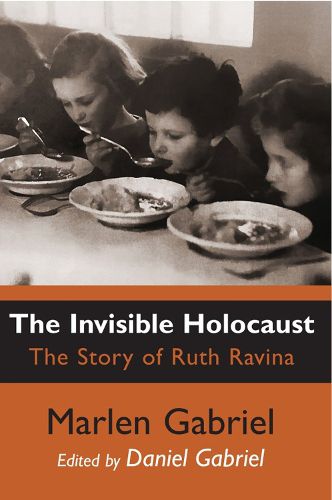Readings Newsletter
Become a Readings Member to make your shopping experience even easier.
Sign in or sign up for free!
You’re not far away from qualifying for FREE standard shipping within Australia
You’ve qualified for FREE standard shipping within Australia
The cart is loading…






Ruth Ravina' s story is one of childhood under duress. She survived hunger, cold, solitude, boredom, and life-threatening situations. Born on April 7, 1937 in Warsaw, she was raised in Kozienice. In 1940 a ghetto was established in Kozienice, where Ruth was forced to witness executions. Escaping the ghetto in the fall of 1942, she survived three forced labor camps in Poland - Pionki, Skarzysko-Kamienna and Czestochowa - with her mother and her cousin Sarah. Mainly hidden, Ruth was in constant fear of being caught and killed as children were not allowed in those camps. Her father and most of her extended family perished in the Holocaust. Only she, her mother and her cousins Sarah and Rose survived.Although Ruth' s ' Invisible Holocaust' , the work transcends the memoir form in its presentation of the author' s metatexts, her own imperiled wartime childhood. Secondary to Ruth' s story, this material nevertheless complicates and intensifies the narrative without relativizing the Holocaust. This dialogue between Jew and German has not taken place before in Holocaust memoirs. It shows the brutality children suffer in war, regardless of the political position they are forced to occupy.
$9.00 standard shipping within Australia
FREE standard shipping within Australia for orders over $100.00
Express & International shipping calculated at checkout
Ruth Ravina' s story is one of childhood under duress. She survived hunger, cold, solitude, boredom, and life-threatening situations. Born on April 7, 1937 in Warsaw, she was raised in Kozienice. In 1940 a ghetto was established in Kozienice, where Ruth was forced to witness executions. Escaping the ghetto in the fall of 1942, she survived three forced labor camps in Poland - Pionki, Skarzysko-Kamienna and Czestochowa - with her mother and her cousin Sarah. Mainly hidden, Ruth was in constant fear of being caught and killed as children were not allowed in those camps. Her father and most of her extended family perished in the Holocaust. Only she, her mother and her cousins Sarah and Rose survived.Although Ruth' s ' Invisible Holocaust' , the work transcends the memoir form in its presentation of the author' s metatexts, her own imperiled wartime childhood. Secondary to Ruth' s story, this material nevertheless complicates and intensifies the narrative without relativizing the Holocaust. This dialogue between Jew and German has not taken place before in Holocaust memoirs. It shows the brutality children suffer in war, regardless of the political position they are forced to occupy.